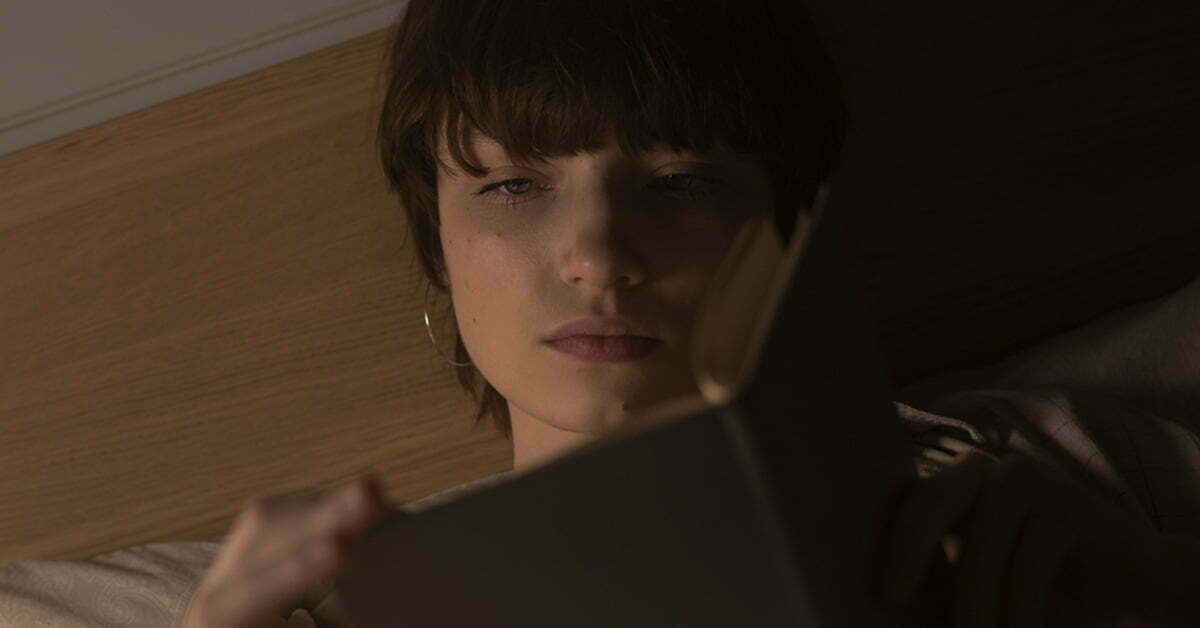
Do you ever find yourself staying up late to read your favorite book in dim lighting? While any adjacent sleepers may appreciate your consideration, you may wonder, “Is reading in the dark bad for my eyes?” In this guide, we address the old myth about how reading in the dark affects your vision and discuss some better habits for preventing eye strain.
Does Reading in the Dark Cause Long-Term Eye Damage?

If you grew up as an avid reader, you might’ve heard endless warnings from your parents about reading in the dark. Even if you didn’t read for fun, your parents may have told you to turn on a light while you were doing homework or else you’d ruin your vision. After hearing all of these warnings, you might still be apprehensive about reading in the dark as an adult.
Thankfully, all these warnings were excessive. There’s no scientific evidence to prove that reading in the dark causes long-term eye damage, according to Harvard Medical School. However, that’s not to say that this practice doesn’t come without some cons. If you huddle under a blanket to read a book with only a faint light to illuminate the pages, you may experience temporary eyestrain. This eyestrain will go away when you stop reading in the dark.
What Does Eyestrain Feel Like?
If you choose to read in the dark, know that you’ll likely experience eyestrain. As the name implies, eyestrain occurs when you overwork the eyes. Reading in the dark is much more challenging than reading with a good light source, so your eyes will become temporarily weak and overworked. Tired eyes don’t come without some additional symptoms. Initial symptoms you may notice include a headache and itchy eyes.
As you continue to read in the dark, you may begin to experience blurred vision, which can make it increasingly difficult to keep up with your reading. If you go from reading in the dark to walking into a brightly lit room, you may experience light sensitivity. While none of these symptoms are dangerous to your long-term eye health, they’re annoying and easily avoidable.
How Do I Make My Eyes Feel Better After Reading in the Dark?
After reading in the dark, you may notice some of the aforementioned symptoms. They’ll likely subside once you cease reading in poor light. Your eyes may also feel dry, which is a common result of reading in the dark and blinking fewer times per minute. While this feeling is uncomfortable, it doesn’t cause long-term damage to your eyes’ function or structure. You can alleviate dry eyes using over-the-counter eye drops to provide lubrication to your eyes. If you have a persistent headache from reading in the dark, you can take medicine like ibuprofen or acetaminophen.
If your eyes continue to feel dry and you can’t find relief, there may be another problem present. When you visit our team at Northeastern Eye Institute, you can meet with a board-certified optometrist who will perform an eye exam and make an accurate diagnosis to help you find relief.
What Kind of Light Should I Read In?
The best kind of light to read in is natural light. If possible, try to limit your reading to daytime hours when the sun is out. Position your work desk or reading chair near a window and let the natural light illuminate your reading material.
If you can, consider sitting outside so that you can surround yourself with the sun’s natural light. If you plan to spend an extended period of time outside, wear sunglasses or glasses with transition lenses to block some of the UV rays from the sun. Reading indoors with natural light coming in should be fine, as modern windows filter out some of the sun’s UV rays.
If you want to read at night, ensure that you’re reading with a good light. A standing lamp or desk lamp can provide enough illumination. If any of the lamps in your home or office still have fluorescent light bulbs, consider switching them out with LED light bulbs. LED light bulbs emit “warm” light, which is easier on the eyes. Plus, you’ll be doing your wallet a favor, as LED light bulbs are more energy efficient and tend to last longer than their older fluorescent counterparts.
What About Using Screens in the Dark?
You’ve likely watched TV in the dark or checked your phone in the middle of the night without turning a light on. While these activities may cause temporary eyestrain, they don’t negatively affect your vision in the long term. You can sit close to the TV or hold your phone close to your face in the dark without causing long-term issues. However, you may choose to avoid these practices, as they can cause uncomfortable symptoms of eyestrain.
Consider Getting Blue-Light Glasses
If you wear glasses every day, you may consider getting a prescription that has blue-light lenses. Blue-light glasses are excellent for filtering out the excess high-energy blue light that comes from fluorescent lights and digital screens. When you wear them over the long term, you may be able to prevent or delay the onset of macular degeneration as you grow older. Opticians also have blue-light contact lenses available if you don’t like wearing traditional glasses.
Visit Your Eye Doctor for Regular Check-Ups
One of the best things you can do for your eye health is to visit your eye doctor for regular check-ups. Your optometrist will listen to your symptoms and perform a thorough eye exam to ensure that your eyes are healthy.
If you don’t already have an eye doctor that you visit regularly, we are currently taking new patients at Northeastern Eye Institute. Contact us today to schedule an initial exam. From there, we can provide an array of eye care services depending on your needs. Before we send you on your way, we’ll recommend a schedule for you to return to visit us so that you can remain current on your eye health.